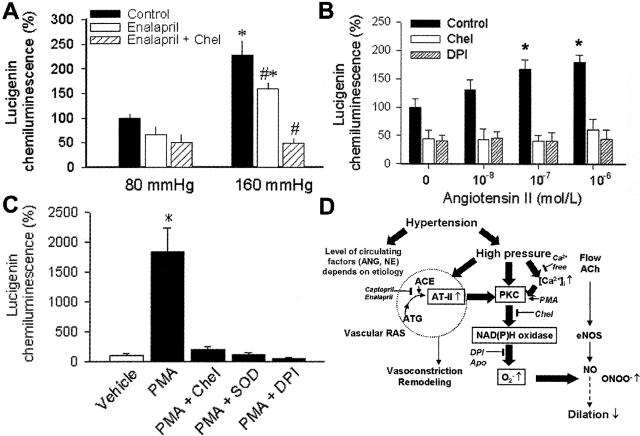Figure 5.
A: O2− generation in FLAs of control rats pressurized to normotensive (80 mmHg) and hypertensive levels (160 mmHg) in organ culture (24 hours) in the presence and absence of enalaprilat (10−4 mol/L) or enalaprilat plus chelerythrine. *, P < 0.05 versus 80 mmHg; #, P < 0.05 versus untreated (n = 4 to 5 rats). B: O2− generation in cultured arteries with or without incubation with angiotensin II (24 hours) in the presence and absence of chelerythrine and DPI. *, P < 0.05 (n = 4 to 5 rats). C: O2− generation in cultured arteries of control rats under control conditions and in the presence of PMA (10−6 mol/L), or PMA plus chelerythrine, or PMA plus DPI, or PMA plus SOD. Data are normalized to the control mean value. *, P < 0.05 (n = 4 to 5 rats). D: Proposed scheme for high pressure-induced activation of Ca2+-PKC pathway promoting NAD(P)H oxidase-derived O2.− production and endothelial dysfunction. High pressure-induced up-regulation of vascular RAS increases tissue concentrations of angiotensin II contributing to increased oxidative stress, vascular remodeling, and proinflammatory alterations.

